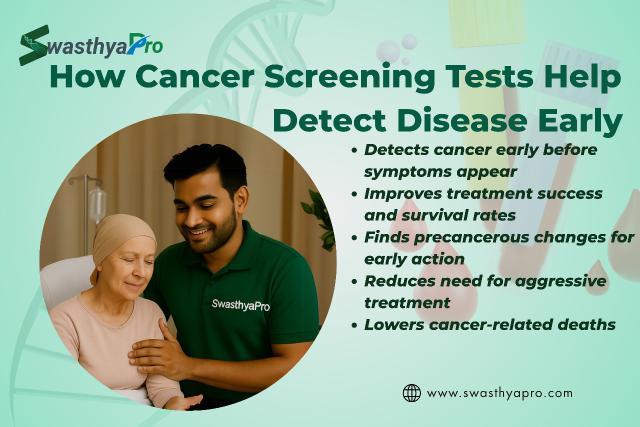When Should You Start Taking Cancer Screening Test?

Introduction: The Right Time Matters
One of the most common questions people ask about health is, “When should I start getting a cancer screening test?” It’s a smart question because timing plays a huge role in detecting cancer early. While there’s no single answer for everyone, doctors follow general age and risk guidelines to help decide when to begin. The sooner you understand your personal risk, the better prepared you are for prevention and early action.
Starting at Age 40: A Common Benchmark
For many people, age 40 is a turning point when routine health checks become more important. Doctors often suggest that both men and women begin certain cancer screening tests around this age. Mammograms for breast cancer and prostate-specific antigen (PSA) tests for prostate cancer often begin in your 40s, especially if you have no symptoms. Starting screenings at the recommended time can make a big difference in spotting cancer early.
Younger Adults With Risk Factors
While most cancer screening tests start at 40 or 50, some people need to begin earlier. If you have a family history of cancer, inherited genetic conditions, or chronic health issues, your doctor may recommend starting tests at a younger age. For example, someone with a parent who had colon cancer might begin colonoscopy screenings at 30 or 35. Screening plans should always be personalized based on your background and risk.
Cancer-Specific Screening Ages
Different types of cancer screening test have their own timelines. Colonoscopies for colon cancer usually begin at age 45. Pap smears and HPV tests for cervical cancer often start as early as 21. Lung cancer screening is typically recommended around age 50 for people with a history of heavy smoking. Each screening has its own schedule, and it's important to know which ones apply to you and when to start them.
Regular Check-ups Help Decide the Right Time
Your doctor plays a key role in guiding when to start each cancer screening test. During regular health check-ups, your doctor may review your medical history, lifestyle, and family background. Based on that, they will recommend a schedule for screenings. These decisions are not one-size-fits-all. That’s why it’s important to attend regular check-ups—even if you feel healthy—so your screening plan is updated as needed.
Delaying Screening Can Be Risky
Some people delay taking a cancer screening test because they feel fine or are afraid of the results. However, early stages of cancer often show no symptoms. Delaying tests may cause cancer to go unnoticed until it becomes harder to treat. By starting screening at the right time, you increase your chances of early detection and better treatment options. Remember, it’s always better to be safe and act early.
Conclusion: Talk to Your Doctor Today
If you’re unsure when to begin a cancer screening test, the best thing you can do is talk to your doctor. They will help you decide which tests are right for your age, gender, and health condition. Starting at the right time is key to preventing serious illness. So don’t wait for symptoms—get informed, stay aware, and take control of your health. A simple cancer screening test at the right time can truly make all the difference.
- Art
- Causes
- Best Offers
- Crafts
- Dance
- Drinks
- Film
- Fitness
- Food
- Spellen
- Festival
- Gardening
- Health
- Home
- Literature
- Music
- Networking
- Other
- Party
- Religion
- Shopping
- Sports
- Theater
- Wellness



